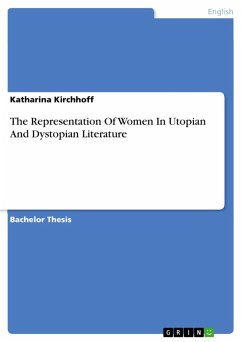Seminar paper from the year 2002 in the subject American Studies - Literature, grade: 2 (B), Ernst Moritz Arndt University of Greifswald (Institute for American Studies/Anglistics), course: Canadian Literature, language: English, abstract: Survival- the state of continuing to live or exist, often in spite of difficulty or danger. So, 'survival' is defined in the Oxford Advanced Learner's Dictionary. Following this definition, one have to admit that this state isn't a very positive one for the people who are in this situation. In Margaret Atwood's 'Survival: A thematic guide to Canadian Literature' it is argued that the "single unifying and informing symbol"(31) of Canada is Survival. This idea comes from Canada's history, where the inhabitants ever had to fight for survival. First, there was wilderness which threatened the life of the first settlers. Later, cultural surviving, which went from the threatened French Canada to the English Canada, was the main point for the inhabitants. So, you can say that the Canadians ever had to fight for survival. Therefore, survival is main subject in Canadian Literature. Atwood leads the reader from this theory to another one which deals with the so-called basic victim positions (which, in her opinion, results from survival as Canada's symbol). She maintains that ninety per cent of Canadian Literature deals with the problem of being a victim. So, I'd like to mention the four basic victim positions she outlines in her study: 1.) The person denies that he/she is a victim.(36) 2.) The person acknowledges the fact that he/she is a victim, but explains this as an act of Fate, the Will of God, the dictates of Biology, the necessity decreed by History, or Economics, or the Unconscious, or any other large general powerful idea.(37) 3.) The person acknowledges the fact that he/she is a victim but refuses to accept the assumption that the role is inevitable.(37) 4.) The person is a creative non-victim.(38)
Dieser Download kann aus rechtlichen Gründen nur mit Rechnungsadresse in A, B, BG, CY, CZ, D, DK, EW, E, FIN, F, GR, HR, H, IRL, I, LT, L, LR, M, NL, PL, P, R, S, SLO, SK ausgeliefert werden.









